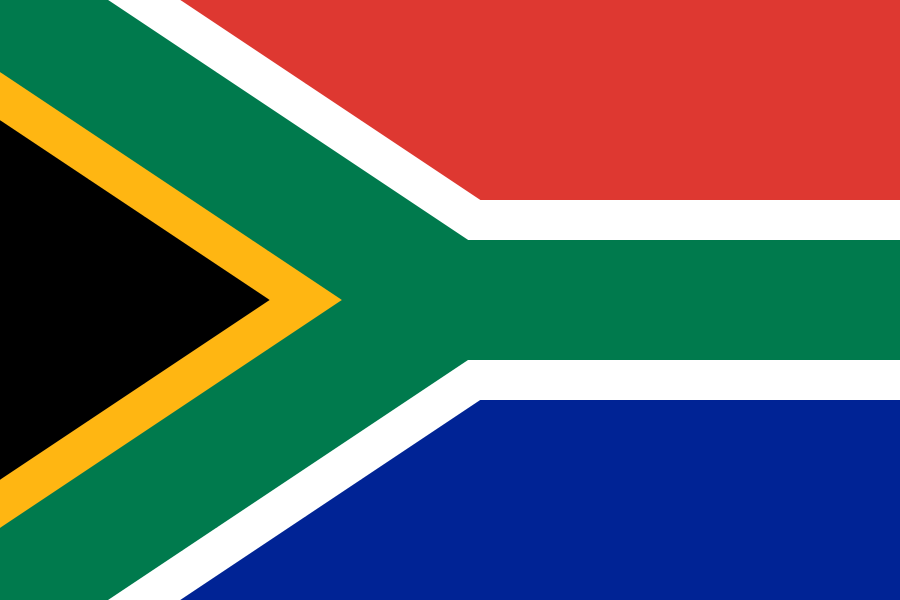Dutch traders landed at the southern tip of modern day South Africa in 1652 and established a stopover point on the spice route between the Netherlands and the Far East, founding the city of Cape Town. After the British seized the Cape of Good Hope area in 1806, many of the Dutch settlers (Afrikaners, called "Boers" (farmers) by the British) trekked north to found their own republics in lands taken from the indigenous black inhabitants. The discovery of diamonds (1867) and gold (1886) spurred wealth and immigration and intensified the subjugation of the native inhabitants. The Afrikaners resisted British encroachments but were defeated in the Second South African War (1899-1902); however, the British and the Afrikaners, ruled together beginning in 1910 under the Union of South Africa, which became a republic in 1961 after a whites-only referendum. In 1948, the Afrikaner-dominated National Party was voted into power and instituted a policy of apartheid - the separate development of the races - which favored the white minority at the expense of the black majority. The African National Congress (ANC) led the opposition to apartheid and many top ANC leaders, such as Nelson MANDELA, spent decades in South Africa's prisons. Internal protests and insurgency, as well as boycotts by some Western nations and institutions, led to the regime's eventual willingness to negotiate a peaceful transition to majority rule. The first multi-racial elections in 1994 following the end of apartheid ushered in majority rule under an ANC-led government. South Africa has since struggled to address apartheid-era imbalances in decent housing, education, and health care. ANC infighting came to a head in 2008 when President Thabo MBEKI was recalled by Parliament, and Deputy President Kgalema MOTLANTHE, succeeded him as interim president. Jacob ZUMA became president after the ANC won general elections in 2009; he was reelected in 2014.
South Africa is a parliamentary republic.
Source: CIA World Factbook
Members:
Resources
Displaying 61 - 65 of 94Agricultural Debt Management Act, 2001 (No. 21 of 2001).
The Agricultural Credit Account, kept in terms of section 20A of the Agricultural Credit Act (here repealed), continues to exist despite the repeal of that Act and is to be called the Agricultural Debt Account. Any agreement which is still in force immediately before the commencement of this Act and which directly or indirectly relates to a debt, remains a legally binding agreement and is enforceable as despite the repeal of any legislation under which or as a result of which that agreement was concluded.
Agricultural Debt Management Amendment Act, 2002 (No. 49 of 2002).
The Heading of section 9 now reads: "Registration and filing of documents and exemptions". Subsection (1) now reads: "Despite the provisions of any other Act, a mortgage bond, agreement, consent, authorisation or other document tendered for the purposes of this Act at any deeds register for registration or filing, may be prepared, executed and attested by an officer of the department.".
Amends: Agricultural Debt Management Act, 2001 (No. 21 of 2001). (2001-12-04)
Repealed by: Agricultural Debt Management Repeal Act, 2008 (No. 15 of 2008). (2008-09-17)
Restitution of Land Rights Act (No. 22 of 1994).
Persons or communities contemplated in section 121(2) of the Constitution are entitled to enforce restitution of a right in land (sect. 2).
Regulations in terms of the Deeds Registries Act: Amendment (No. R. 659 of 2010).
These Regulations amend the Regulations in terms of the Deeds Registries Act by substituting the Schedule prescribed by regulations 84 and 86 of the Regulations. The Schedule prescribes fees for registrations.
Amends: Regulations in terms of the Deeds Registries Act. (1999-02-19)
Regulations made under the Electricity Regulation Act, 2006 for the expropriation on behalf of a licensee (No. R. 147 of 2008).
These Regulations, made under the Electricity Regulation Act, 2006, prescribes the procedures and formal requirements for the expropriation of any right in or over private land by the State on behalf of a licensee as contemplated in section 27(1) of the Act. A licensee shall apply to the Minister of Public Works so as to initiate the procedure.
Implements: Electricity Regulation Act, 2006 (No. 4 of 2006). (2006-07-05)


